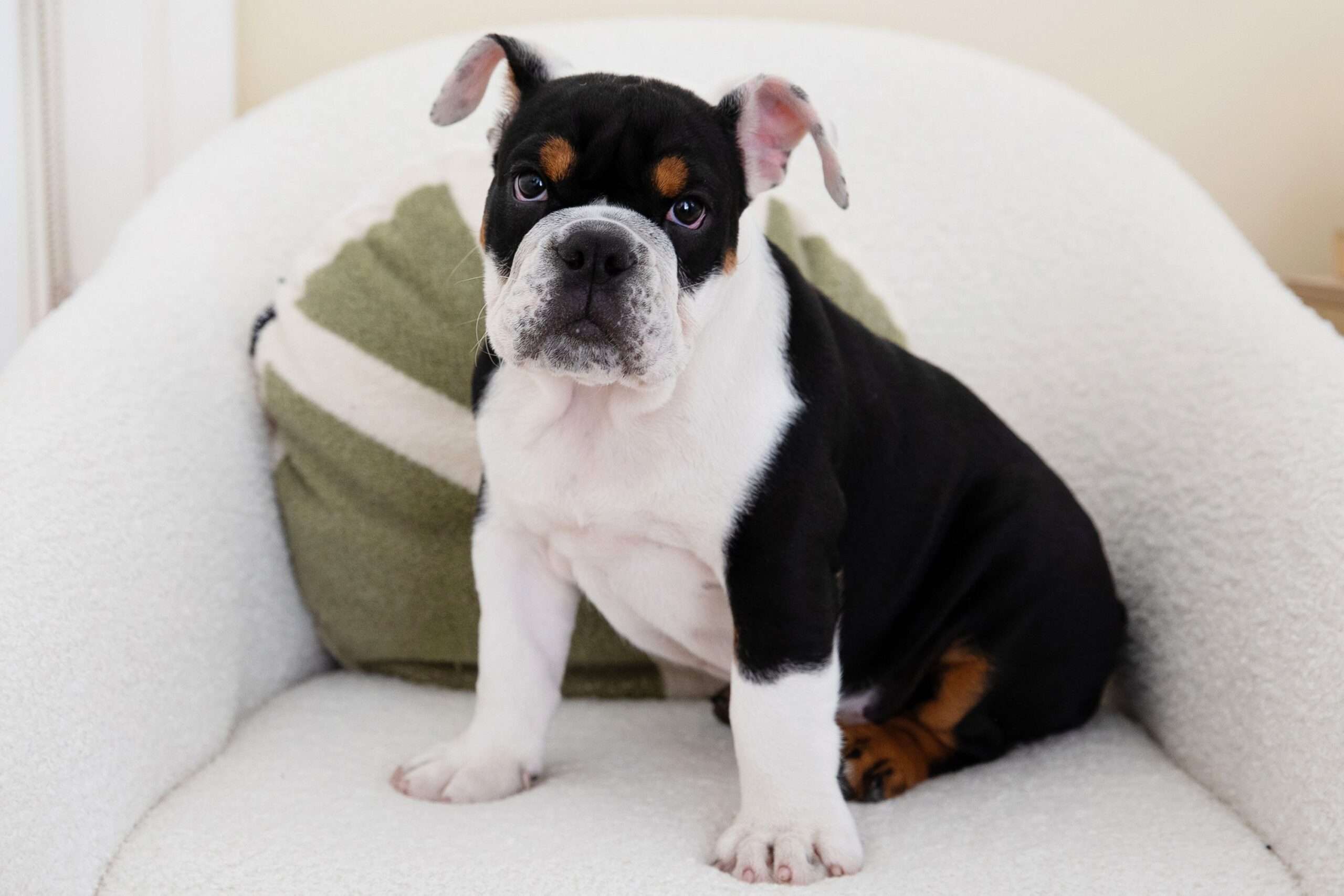Key Takeaways:
- French Bulldogs are a small, muscular breed known for their distinctive bat-like ears and wrinkled face.
- They have a friendly and affectionate temperament, making them great companions for families and individuals alike.
- Frenchies require minimal exercise but can be prone to obesity, so it's important to monitor their diet and provide regular walks.
- Due to their short snouts, French Bulldogs may experience breathing difficulties and are sensitive to extreme temperatures.
- Regular grooming is necessary for Frenchies as they shed moderately and require special attention to their facial wrinkles and ears.
Are you ready to embark on an exciting journey into the world of French Bulldogs, also known as Frenchies? These adorable and lovable dogs have captured the hearts of dog lovers all over the world. By delving into this subject, you will not only discover the unique characteristics and care requirements of this breed but also gain valuable insights into why understanding them is essential for any dog enthusiast. Whether you are a current Frenchie owner or considering adding one to your family, this topic will provide you with the knowledge and tools to ensure their well-being and happiness. So, let's dive in and uncover the fascinating world of French Bulldogs together!
The Appearance of a French Bulldog
French Bulldogs are small-sized dogs with a distinctive appearance. They have a compact and muscular body, with a sturdy build. Their head is square-shaped and their eyes are round and expressive. One of the most noticeable features of French Bulldogs is their bat-like ears that stand erect on top of their head. They have a short and smooth coat that comes in various colors such as brindle, fawn, or white with patches.
French Bulldogs have a unique facial structure, with a pushed-in nose and wrinkles on their forehead. Their snouts are short and they have a strong jawline. Despite their small size, French Bulldogs have a solid bone structure and well-developed muscles. They typically weigh between 16-28 pounds (7-13 kilograms) and stand about 11-12 inches (28-30 centimeters) tall at the shoulder.
The Friendly and Affectionate Nature of French Bulldogs
French Bulldogs are known for their friendly and affectionate nature. They love to be around people and enjoy being part of the family. They are very social dogs and get along well with children, other pets, and even strangers. French Bulldogs crave attention and will often seek out cuddles and affection from their owners.
These lovable dogs have a playful side to them as well. They enjoy interactive games like fetch or tug-of-war, which can provide mental stimulation for them. Despite their small size, French Bulldogs have a big personality and can be quite entertaining to be around.
Exercise Needs for French Bulldogs
While French Bulldogs may not require as much exercise as some other breeds, they still need regular physical activity to stay healthy. Daily walks or play sessions in the yard can help fulfill their exercise needs. It's important to note that French Bulldogs are brachycephalic, which means they have a shortened snout and can have difficulty breathing in hot weather or during intense exercise. Therefore, it's essential to monitor their activity levels and avoid strenuous exercise in extreme temperatures.
French Bulldogs also enjoy mental stimulation through puzzle toys or training sessions. These activities can help keep them mentally sharp and prevent boredom. It's important to strike a balance between exercise and rest for French Bulldogs, as they are prone to overheating and exhaustion.
A Suitable Diet for a Healthy French Bulldog
Feeding your French Bulldog a balanced diet is crucial for their overall health and well-being. They require high-quality dog food that is specifically formulated for small breeds. It's important to choose a food that provides the right balance of protein, carbohydrates, fats, vitamins, and minerals.
French Bulldogs have a tendency to gain weight easily, so portion control is essential. It's recommended to feed them small meals throughout the day rather than one large meal. This helps prevent overeating and reduces the risk of obesity. Additionally, it's important to provide fresh water at all times to keep them hydrated.
Training Ease for French Bulldogs
French Bulldogs are generally intelligent dogs that are eager to please their owners. This makes them relatively easy to train compared to some other breeds. However, they can also be quite stubborn at times, so consistency and positive reinforcement methods work best when training them.
Starting training from an early age is recommended for French Bulldogs. Basic commands such as sit, stay, and come should be taught first before moving on to more advanced training. Regular short training sessions with rewards like treats or praise can help motivate them and make the training process enjoyable for both you and your Frenchie.
Common Health Issues in French Bulldogs and How to Manage Them
French Bulldogs are prone to certain health issues due to their unique physical characteristics. One common problem is brachycephalic airway syndrome, which can cause breathing difficulties. It's important to keep them in a cool and well-ventilated environment, especially during hot weather. Regular visits to the veterinarian can help monitor their respiratory health.
Another health concern for French Bulldogs is obesity. Due to their tendency to gain weight easily, it's important to provide them with a balanced diet and regular exercise. Obesity can lead to various health problems such as joint issues and heart disease.
French Bulldogs are also susceptible to skin allergies and ear infections. Regular grooming, including cleaning their ears and keeping their skin clean, can help prevent these issues. It's important to consult with a veterinarian if any unusual symptoms or health concerns arise.
Common Health Issues in French Bulldogs and How to Manage Them
1. Brachycephalic Syndrome
French Bulldogs are prone to a condition called brachycephalic syndrome, which is characterized by respiratory difficulties due to their short snouts and flat faces. This can lead to symptoms such as snoring, wheezing, and difficulty breathing, especially during exercise or in hot weather. To manage this condition, it is important to keep your French Bulldog in a cool and well-ventilated environment. Avoid strenuous activities that can put additional strain on their respiratory system. Regular visits to the veterinarian are crucial for monitoring their breathing and ensuring early intervention if any issues arise.
Signs of Brachycephalic Syndrome:
- Snoring or noisy breathing
- Difficulty exercising or playing for extended periods
- Rapid or shallow breathing
- Gagging or retching
2. Allergies
French Bulldogs are also prone to allergies, which can manifest as skin irritations, itching, redness, and ear infections. These allergies can be triggered by various factors such as food ingredients, environmental allergens like pollen or dust mites, or even certain grooming products. To manage allergies in your French Bulldog, it is essential to identify the allergen causing the reaction through allergy testing conducted by a veterinarian. Once identified, you can take steps to avoid exposure to the allergen and provide appropriate treatment such as antihistamines or hypoallergenic diets.
Common Allergy Triggers:
- Certain proteins found in common dog foods
- Pollen from grasses and trees
- Dust mites present indoors
- Mold spores
Remember that while these paragraphs provide valuable information about common health issues in French Bulldogs and how to manage them, it is always best to consult with a veterinarian for personalized advice and treatment options.
In conclusion, French Bulldogs are friendly and easy to care for. They make great companions and require regular exercise and grooming to stay healthy and happy.
Are French bulldogs high maintenance?
Do French Bulldogs require a lot of maintenance? French Bulldogs can be high-maintenance because of their health problems. It is necessary to regularly clean their ears to prevent infections, and if your Frenchie has allergies, they may need extra medications, special shampoo, and frequent visits to the vet to maintain healthy and clear skin.
Are Frenchies hard to potty train?
Potty training French bulldogs can be relatively simple since they are intelligent. However, the success of training depends on your approach and level of patience. It is important to note that there are no shortcuts to potty training, and dogs that undergo quick training methods often end up having accidents.
Are French bulldogs a good house pet?
They make an excellent choice as a companion dog for singles, families with children, couples, or anyone else. They are playful, loyal, and affectionate, and they do not require much grooming or exercise.
Are French bulldogs easy to train?
According to Dykes, French Bulldogs are easy to train due to their ritualistic nature. The key is to train yourself and establish a consistent schedule. If you are not consistent, it will be more challenging to train your puppy.
Do Frenchies bark a lot?
In general, French bulldogs are not known for barking excessively. Most Frenchies only bark occasionally, but it's important to remember that barking behavior can vary depending on the individual dog and their surroundings. However, it is safe to say that the French bulldog is not typically recognized for its tendency to bark.
Why does my French Bulldog pee everywhere?
French Bulldogs engage in urine marking to establish their territories, although in certain instances, it may be more of a medical concern rather than territorial marking. If they are newly introduced to your home, it is understandable that they would want to mark their new territory.

















